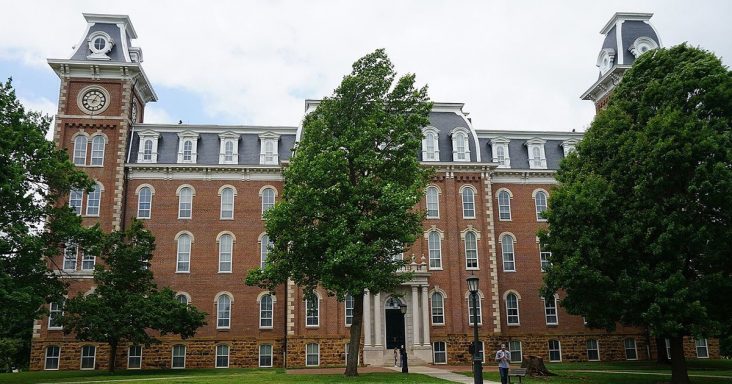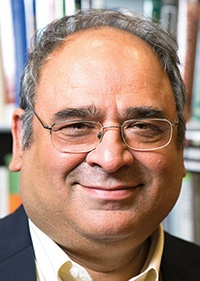University of Arkansas overhauls full-time MBA program
by November 11, 2019 10:47 am 2,146 views

Photo credit: Michael Barera
The full-time MBA program at the Sam M. Walton College of Business at the University of Arkansas was strong, but program leaders wanted to improve it, said Vikas Anand, executive director for MBA programs and graduate innovation.
“We really wanted to move up to the next level,” said Anand, who is also a management professor. “We did a pretty detailed survey and set up interviews with dozens of corporations and their executives to find out what are some of the new skills that will be needed in the MBA grads of the future. We did a lot of benchmarking with the top schools, and there were several changes we felt we had to make.”
Some of the key changes to the program include a greater emphasis on soft skills, expanded instruction and business projects to increase global issues knowledge, and the addition of classes. The latter lengthened the program to two years, from 16 months.
The UA didn’t have a full-time MBA program for the 2018-19 academic year as it was undergoing the changes. The process to complete the changes took more than two years, and the UA received state approval for the new program in May 2018. This fall is the first semester for the new program, and enrollment is 38 students, which is similar to the class size in the 2017-18 academic year. Program capacity is about 45 students, and the class that just entered will graduate in spring 2021.
The UA also offers a two-year executive MBA program that is mostly online but requires students to attend class at the UA at least one Saturday a month. About 125 students are enrolled in the program.

“The full-time program is ideal for people who are trying to launch a career,” Anand said. “The executive MBA people are those that are trying to accelerate an existing career.”
The new full-time program — in the first two weeks of each semester — will include professional development training instead of formal classroom education. In the first semester, students are developing their negotiating skills, and corporate executives with expertise in negotiating are providing the training. Executives are also showing students how to use spreadsheets and data. The Winthrop Rockefeller Institute worked with students on aspects of leadership. A Google executive helped students through a branding exercise and showed them how to develop their own brand image.
“That’s just scratching the surface,” Anand said. “A variety of companies sponsored lunches every day to talk about the company. Then, we broke them into small groups, and they spent time at a variety of organizations so that they could meet with people there and understand that if they chose careers in specific areas what their day would look like.”
In the first two weeks of the spring semester, Nielsen executives will train students on how to use advanced analytics with its data. In the fall semester of the second academic year, leadership will be the focus.
With regard to the addition of classes, the 53-credit-hour program will provide more depth for specific tracks of educational focus, such as supply chain management, Anand said. The program expanded the number of classes in each track, and this lengthened the MBA program to a two-year program.
“We were very confident that this was the right way to go,” he said. “We’ve had a lot of positive feedback to that.”
With regard to the global issues knowledge, the program requires students to complete a global experience. It’s similar to a study abroad program, but by next year, it will be changed to business projects that are completed in another country, such as in China, India or Brazil. These projects are expected to take about three weeks.
One of the retained features of the former program was refined: the opportunity for students to work as interns for up to 20 hours per week. Students are required to complete at least one internship in the program.
“The number of companies that are recruiting for our internships is phenomenal,” Anand said.
